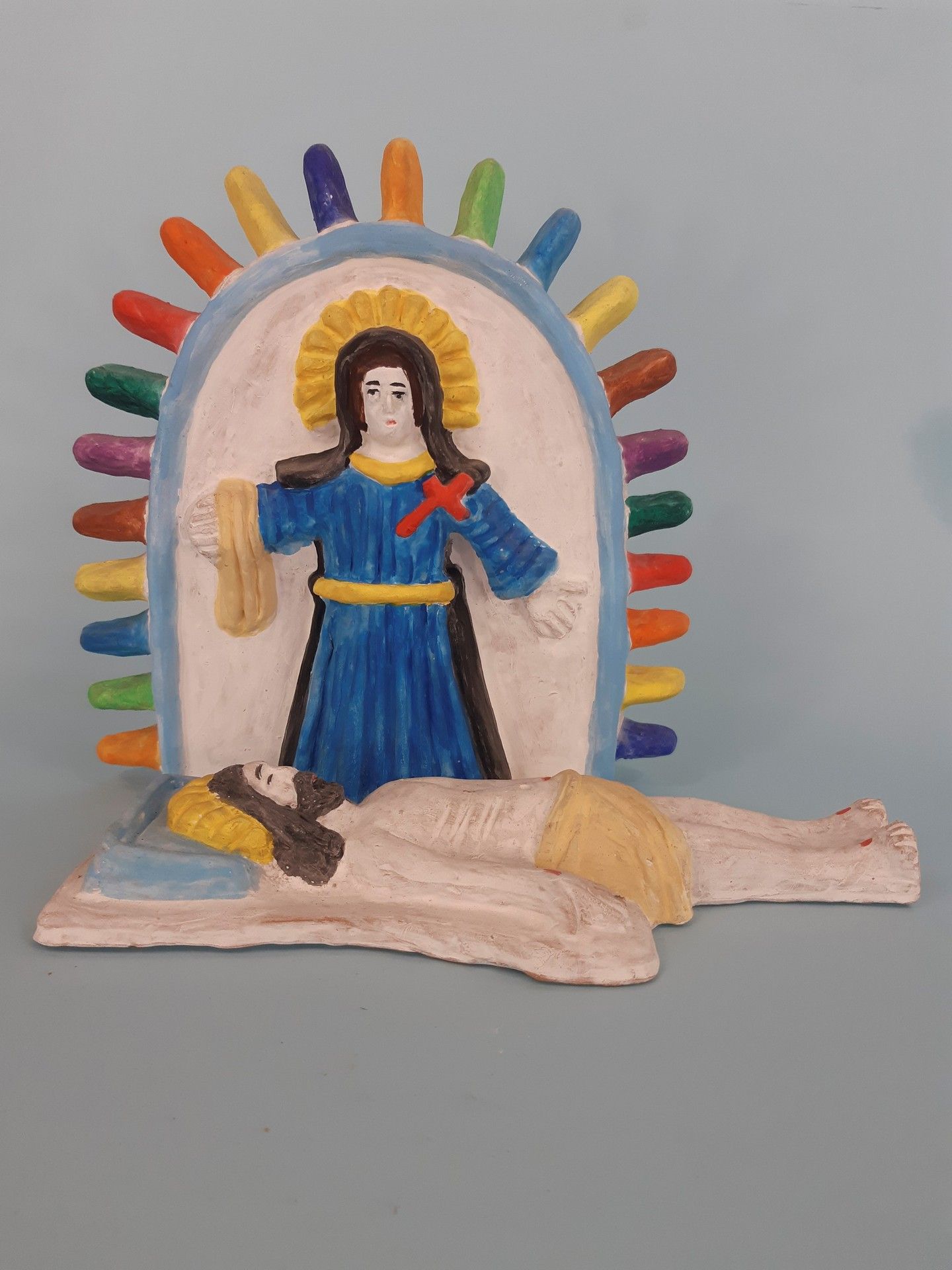Description
Giacomo Iudici
Those who love folk ceramics, and in general the craft traditions of the Sicilian land, owe a great debt to Master Mario Iudici. Since the 1960s, this Caltagirone potter has devoted himself body and soul to the rediscovery of popular production, which was gradually in danger of disappearing. It was a courageous choice: at that time, the process of re-evaluation of folk art by scholars and collectors had not yet begun, and, devoting oneself to traditional ceramics risked being a commercially unsuccessful operation. We owe it in large part to Master Iudici and his love for traditions if folk utensils, once very common in the countryside and in the villages Sicily, has not been prematurely relegated to museum showcases alone, and if there has instead been productive continuity until today. The Master has continued to make, for enthusiasts and collectors, the objects of Caltagirone tradition: anthropomorphic oil lamps, saimere for storing pork lard; quartare for fill water at the public fountain and bùmmoli to keep it fresh; u scutiddaru for doing laundry; fangotti-the large dishes for drying in the sun the extract of tomato; the cylindrical burmie of various sizes to store various foods; the tablets of madonnas and saints to be affixed to the bedside to protect of those who slept there, and so on. But Iudici is also a fine potter, able to make objects that, while drawing on iconographies and motifs of the past, have the characteristics of the unique unique and of artistic ceramics. To recapture this unique charm and character, Giacomo Iudici - direct heir to the family tradition - has made whistles molded from clay local clay quarried and purified by hand, depicting saints and patrons. On the whistles it is possible to admire the thousands of nuances that the handcrafted clay possesses: characteristics that make these pieces special and juxtapose them with the ancient production traditions of Calatino potters.
You may also like
